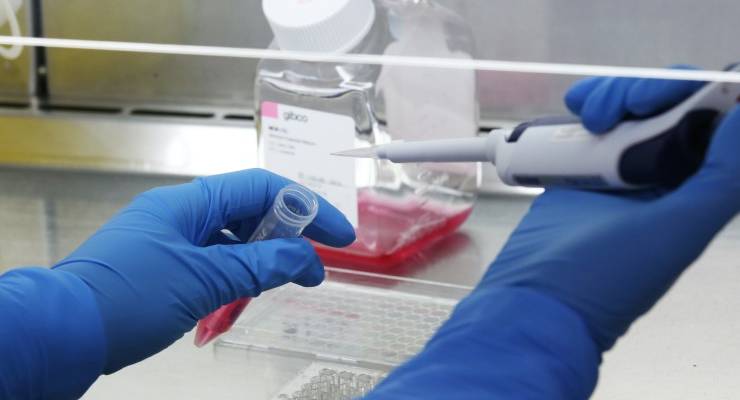
Coronavirus has sent young, healthy people to the ICU with severe respiratory infections, and has claimed the lives of the elderly all the way down to a newborn. In Victoria, at least 10 people aged in their 20s are battling coronavirus in hospital.
Hoping to understand why COVID-19 affects some people so severely, while others don’t show symptoms at all, researchers have turned to gene sequencing to find out what makes the virus so dangerous.
What are we hoping to find out?
The COVID Human Genetic Effort, a global research consortium created by US investigators, aims to look at genes that react to the coronavirus.
Heading the effort’s Oceania node is Garvan Institute of Medical Research immunologist Dr Stuart Tangye, who tells Crikey the team was searching for the “Achilles heel” of vulnerability in COVID-19 patients.
“We’re not looking at the obvious, vulnerable population. We’re looking at those adults under 55 travelling relatively well who then get struck down very badly,” he said.
“We’re trying to understand what role genetics play in the severity of the disease, and see how we can have a preventive or therapeutic response.”
Similarly, Professor John Christodoulou of the Murdoch Children’s Research Institute says that researchers could look at elderly people who didn’t develop severe symptoms.
“You’d look at whether there’s a genetic change that makes them more resistant. If you can identify changes in genes, either way, that could help to identify potential strategies for dealing with the virus,” he said.
The research will draw off other studies which found people who are susceptible to severe influenza have defects in their immune pathways.
Globally, around 1000 participants have been recruited to have their blood taken and genes sequenced. The study is currently awaiting ethics approval in Australia.
How would treatment work?
Firstly, we would need the genetic sequence of thousands of COVID-19 patients with a range of symptoms to determine which genes increased susceptibility. Similar work was undertaken in response to the emergence of HIV/AIDS.
Preventative or therapeutic medication could then be designed. It would be some time, Christodoulou adds, before people can waltz into hospital to be tested for COVID-19 susceptibility genes.
“Genomic sequencing is available diagnostically, but it is expensive in a clinical setting. Genomic testing isn’t covered through Medicare or health insurance,” he said.
“If someone presents with infection and it looks like it going to be more severe you could test them and identify what genes are in play … but they would have to pay for it.”
Could it all be down to a gene?
Age, obesity and underlying medical conditions all increase a person’s chances of developing severe symptoms of COVID-19.
Research in Italy has suggested those with type O blood may be less susceptible to the virus, while those with type A may be of higher risk due to a number of genes.
In the UK and the US, people of Black, Hispanic and Asian descent have been found to be more impacted by COVID-19 compared to those of Caucasian ethnicity — though this arguably has as much to do with social inequality as genetics.
But there’s another condition which increases susceptibility to a fatal case of COVID-19, evolutionary geneticist Professor Jenny Graves of La Trobe University tells Crikey: being male.
Globally, more women are being infected with the virus, while up to twice as many men are dying from it. In Australia, infection rates are about equal, though men are more likely to end up in the ICU or die from the virus. Men make up 57% of Australia’s 189 deaths as of Friday July 31.
“One obvious gene is the gene that makes you male, so it’s pretty clear the sex-determining gene would be a big risk factor,” Graves said.
A recent small study suggested a malfunctioning gene of the X chromosome could be behind this sex divide.
“The other factor was testosterone, the observation being that most people who are severely ill or died were bald,” Graves said. High levels of the androgen testosterone have been linked to male pattern baldness.
One study in Italy found those who were being treated for prostate cancer with androgen-deprivation therapies were less likely to be infected with COVID-19 or develop severe symptoms.
While Graves said there’s still a long way to go in genetic research for COVID-19 susceptibility, the more information we have, the better.
“The more we know about coronaviruses the more prepared we’ll be for when the next one comes around,” she said.








Males are inherently weak & less resilient.
Meanwhile, in other news….